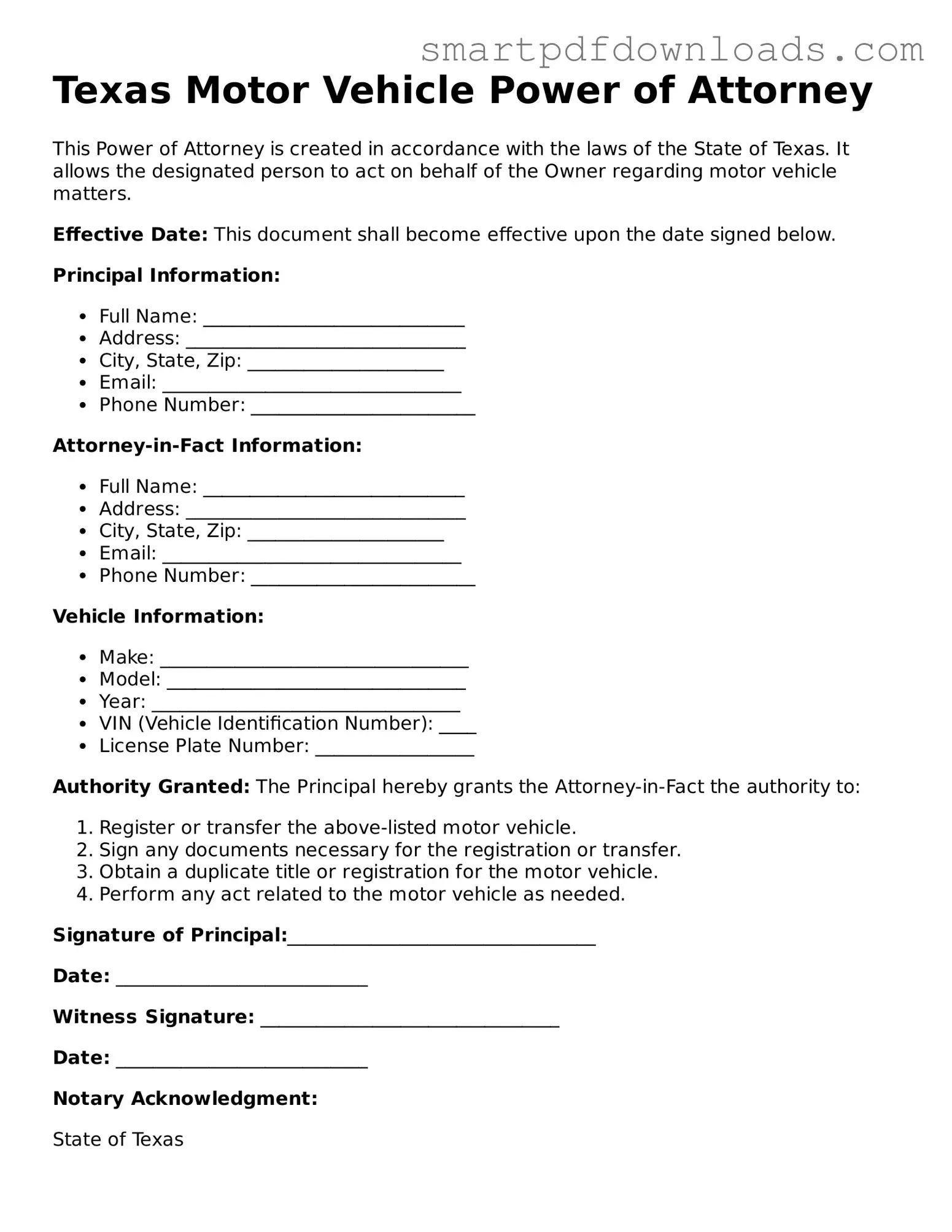Legal Motor Vehicle Power of Attorney Form for the State of Texas
The Texas Motor Vehicle Power of Attorney form is a legal document that allows an individual to designate another person to act on their behalf regarding motor vehicle transactions. This form is essential for facilitating tasks such as registering a vehicle, transferring ownership, or obtaining a title. By granting this authority, the principal ensures that their interests are represented in matters related to motor vehicles.
Edit Motor Vehicle Power of Attorney Online

Legal Motor Vehicle Power of Attorney Form for the State of Texas
Edit Motor Vehicle Power of Attorney Online

Edit Motor Vehicle Power of Attorney Online
or
⇓ PDF File
Finish the form and move on
Edit Motor Vehicle Power of Attorney online fast, without printing.